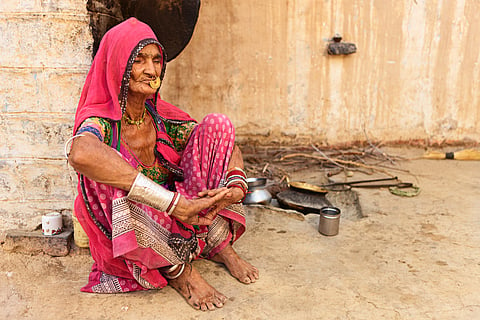

More than 351 million women and girls could remain in extreme poverty by 2030 if trends continue.
Girls now surpass boys in global school enrolment, but gaps persist in Africa and Asia.
Maternal mortality has fallen nearly 40% since 2000, yet women spend longer in poor health than men.
Women still shoulder 2.5 times more unpaid care work and hold under a third of parliamentary seats.
Closing the digital divide could add $1.5 trillion to global GDP and lift 30 million women from poverty by 2050.
Global progress on gender equality is stalling and, without urgent action, hundreds of millions of women and girls will remain trapped in poverty, exposed to violence and excluded from decision-making, according to a new United Nations report.
The Gender Snapshot 2025, released on September 16, 2025 by UN Women and the UN Department of Economic and Social Affairs (UN DESA), found that if current trends continue, more than 351 million women and girls could still be living in extreme poverty by 2030. Female poverty has remained stuck at around 10 per cent since 2020, with climate change and conflict threatening to deepen inequalities.
2025 is a crucial year, the report underlined, with just five years left for the world to deliver on the 2030 Agenda for Sustainable Development.
The report shows that despite gains (including a 39 per cent drop in maternal mortality since 2000 and higher school enrolment rates for girls globally) setbacks are evident across health, education, work and representation.
Women continue to spend 2.5 times more hours on unpaid domestic and care work than men, hold less than a third of parliamentary seats worldwide and are underrepresented in managerial roles, where gender parity could take nearly a century to achieve at current rates.
Digital exclusion remains a major barrier: 70 per cent of men used the internet in 2024 compared to 65 per cent of women. Closing this gap alone, the UN estimated, could benefit 343 million women and girls by 2050, lift 30 million out of poverty and boost global gross domestic by $1.5 trillion by 2030.
Sima Bahous, executive director of UN Women, in a statement said: “Where gender equality has been prioritised, it has propelled societies and economies forward. Targeted investments in gender equality have the power to transform societies and economies.”
Other findings include:
64 million more women than men were food insecure in 2024.
One in eight women aged 15-49 has experienced physical or sexual violence from an intimate partner in the past year.
Almost one in five young women was married before 18, a decline from 22 per cent in 2014 to 18.6 per cent in 2024.
102 countries have never had a woman head of state or government.
In 2024, 676 million women and girls lived within 50 kilometres of deadly conflict, the highest figure since the 1990s.
The report warned that under a worst-case climate scenario, up to 158 million more women and girls could be pushed into extreme poverty by 2050. It also notes that women’s employment is more exposed to disruption from generative AI than men’s: 27.6 per cent compared with 21.1 per cent.
Li Junhua, UN under-secretary-general for economic and social affairs, in the statement said accelerated action across education, care, green jobs and social protection “could reduce the number of women and girls in extreme poverty by 110 million by 2050, unlocking an estimated $342 trillion in cumulative economic returns.”
The findings come ahead of the UN General Assembly in New York, where leaders will mark 30 years since the Beijing Declaration and Platform for Action, considered a landmark in advancing women’s rights. The Beijing+30 Action Agenda outlines six urgent priorities, from eliminating violence and poverty to ensuring equal leadership, climate justice and digital inclusion.
Bahous urged governments to act decisively: “I encourage all leaders to make commitments and investments towards this and to choose a world where women’s rights are delivered at scale and the returns are shared by all.”